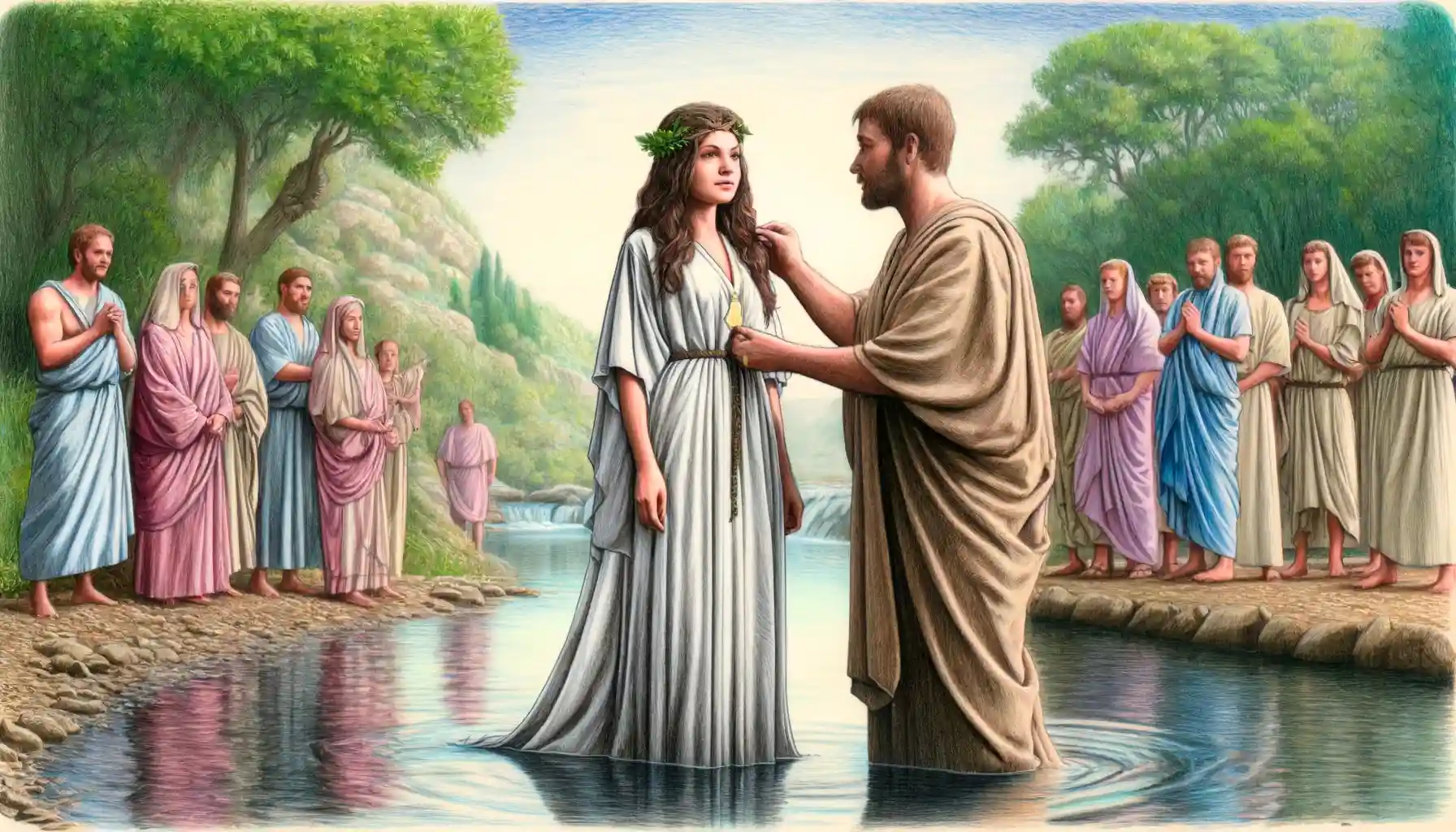
Lydia: First European Convert to Christianity by Paul
Lydia, a prominent figure in the New Testament, is known as the first European convert to Christianity. Converted by Paul, she played a significant role in the early Christian community.
Quick Facts
- First European Convert: Lydia is recognized as the first European convert to Christianity, converted by Paul in Philippi.
- Businesswoman: She was a dealer in purple cloth, a valuable and luxurious commodity in ancient times.
- From Thyatira: Originally from the city of Thyatira, known for its dyeing industry.
- Worshiper of God: Lydia was already a worshiper of God, meaning she was likely a Gentile who embraced Jewish faith and practices.
- Baptized by Paul: After hearing Paul’s message, she and her household were baptized.
- Hosted Paul and His Companions: Lydia offered her home for Paul and his companions, providing them with a base of operations in Philippi.
- Role in the Early Church: Her hospitality and leadership helped establish the early Christian community in Philippi.
Background and Conversion
Lydia was originally from Thyatira, a city famous for its dyeing industry, particularly for producing purple cloth, which was highly prized in the ancient world (Acts 16:14). As a businesswoman dealing in this luxurious commodity, Lydia was likely well-off and influential.
She is described as a “worshiper of God,” indicating that she was a Gentile who had embraced the Jewish faith, practicing its customs and attending gatherings for prayer (Acts 16:13-14). Lydia encountered Paul and his companions in Philippi, a leading city of the district of Macedonia and a Roman colony, where she was attending a place of prayer by the river.
Hearing Paul’s Message
Paul’s message about Jesus Christ deeply resonated with Lydia. The Lord opened her heart to respond to Paul’s teaching, and she accepted the gospel with genuine faith (Acts 16:14). Her conversion is significant as it marks the spread of Christianity into Europe, representing the beginning of a new phase in the mission of the early church.
Baptism and Hospitality
Lydia and her household were baptized following her conversion, signifying their acceptance into the Christian faith (Acts 16:15). Baptism symbolized purification and initiation into the community of believers. Lydia’s immediate response was to offer hospitality to Paul and his companions, insisting they stay at her home. This act of generosity provided Paul with a base of operations in Philippi and demonstrated her commitment to supporting the ministry.
Role in the Early Church
Lydia’s home likely became a meeting place for the early Christians in Philippi, contributing to the establishment and growth of the church in that city. Her leadership and resources were instrumental in fostering a supportive environment for the fledgling Christian community. Lydia’s example of faith, hospitality, and leadership serves as an inspiration and model for Christian service.
Theological Themes
- Hospitality and Generosity: Lydia’s willingness to open her home to Paul and his companions highlights the importance of hospitality in Christian ministry.
- Role of Women: Lydia’s conversion and subsequent actions underscore the significant role that women played in the early church, both as converts and as leaders.
- Divine Guidance: The account of Lydia’s conversion illustrates how God prepares hearts to receive the gospel and directs the mission of the church.
Legacy and Impact
Lydia’s legacy is celebrated as a pivotal moment in the spread of Christianity. Her conversion is often seen as the gateway through which the gospel entered Europe. Her example of faith and leadership continues to be recognized and honored in Christian tradition.
Conclusion
Lydia, the first European convert to Christianity, was a businesswoman from Thyatira who embraced the gospel after hearing Paul’s message. Her baptism, hospitality, and role in the early church underscore her significant contribution to the spread of Christianity and the establishment of the Christian community in Philippi.



